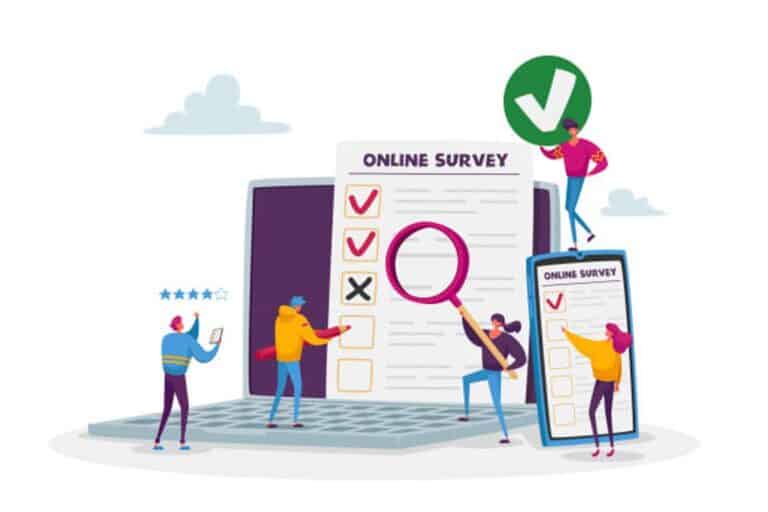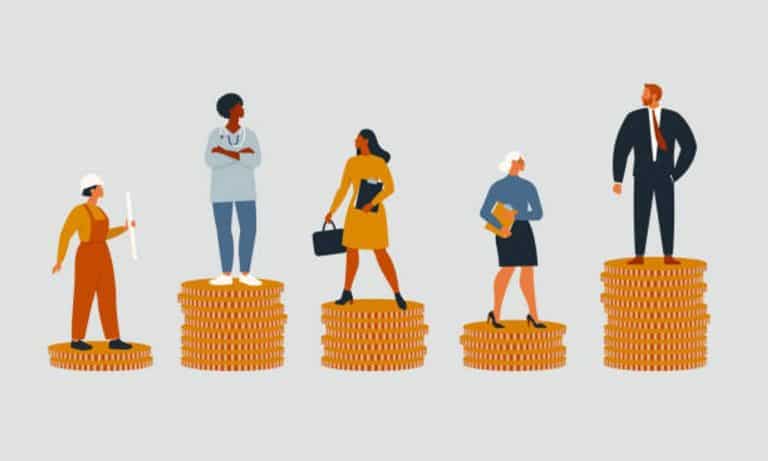How to become a Data Analyst
To find patterns, trends, and insights that might aid companies in making wise decisions, a data analyst analyzes and interprets large, complicated amounts of data using a variety of statistical and computational approaches.
For this discussion, we will explore the career paths in becoming a data analyst alongside explaining who a data analyst is and what they do.
Advertisement
Also, check out How to Become a Portfolio Manager.
Who is a data analyst?
Data analysts are trained individuals that utilize huge datasets to extract insights and meaning that assist firms in understanding their performance, seeing opportunities, and making data-driven decisions.
Statistical software, computer languages, and data visualization tools are some of the tools that data analysts frequently employ to analyze data and present their findings to others.
Advertisement
What does a data analyst do?
The core responsibilities of a data analyst include:
- Data analysts frequently have to gather information from many sources and make sure it is accurate and complete. To get the data ready for analysis, they might also need to clean and alter it.
- They analyze data using a variety of statistical and computational approaches to find patterns, trends, and insights. To examine the data, they might employ applications like Excel, SQL, or computer languages like R or Python
- To communicate their findings to others, data analysts frequently utilize charts, graphs, and other visuals to make the data easier to grasp.
- Produce reports from the analysis and manipulation of data
Skills needed to be a data analyst
Every data analyst should possess the following core skills. The skills are divided into technical and non-technical skills. The technical skills include
Working with data as a data analyst requires the skills and the abilities to be able to understand statistics and various statistical methods and tools. It is essential to have these skills to analyze and interpret data.
Programming Skills
Data analysis is not heavily dependent on having great knowledge of programming. However, there are certain aspects of programming skills and languages a data analyst should understand. Programming languages such as Python, R, SQL, and/or SAS are essential in handling data analysis.
Data Visualization Skills
It is one of the most important skills, not the most significant skills to have as a data analyst. The end users of the data should be able to view the data in a format that is appealing and comprehensive for them to use or view.
Therefore, a data analyst must have an understanding of the tools and resources for the presentation of data in a visually appealing and easy-to-understand format.
The non-technical skills include the following:
Problem-Solving Skill
Dealing with data as a data analyst involves a basic which is to solve problems. The collection and analysis of data help to create actionable goals, plans, and solutions to solve problems.
Therefore, a data analyst must be an individual with a thinking hat and a keen interest in solving problems, whether simple or complex.
Communication Skills
Data analysts should be able to communicate their findings to technical and non-technical stakeholders effectively. They should be able to explain complex data in a way that is easy to understand for their audience.
Attention to Detail
The accuracy and precision of data are essential, hence, the more reason why a strong eye for details (no matter how minute it is) is essential for a data analyst.
Staying updated
This skill is not usually mentioned in most cases. However, it is important because, without the passion and interest for continuous learning, failure is inevitable.
Whether as employed data analysts or not, data analysts should be committed to continuous learning and staying up-to-date with the latest technologies and techniques in the field of data analysis. Consequently, they remain relevant and competitive.
Also, check out How to Become a Cloud Technologist.
Do you need a degree to be a data analyst?
Many people who are interested in the field have the perception that a university degree is the only requirement for becoming a data analyst. The answer is not true as having a degree in the area of data analysis or a related field is good but not the only requirement or the only route.
There are cases where we have individuals from the field of statistics, mathematics, economics, computer science, engineering, and other quantitative fields doing well as data analysts.
Furthermore, if you are interested in becoming a data analyst, you can help yourself through coding boot camps, online courses, self-study, internship, and mentorship. These mentioned avenues can help you acquire the necessary skills to become a data analyst.
Job Opportunities Available to Data Analysts
One of the most sought-after things in the world we currently live in is data. Data is the fuel that powers the world, and businesses of all sizes are now aware of its influence when making choices and developing plans to strengthen their business models.
As a result, data analysts have a wide range of opportunities both now and in the future. Data analysts have career prospects in a variety of industries, like :
Technology
Data analysts are frequently employed by the technology sector. The examination of the data gathered from the process research is used to optimize industrial processes.
Products, both physical and digital, are created based on data analysis drawn from process development, consumer behavior, and historical occurrences.
Finance
The numerous financial programs and operations rely on distinct types of data that are dispersed throughout the many financial business sectors. Making wise strategies and judgments based on the analysis of such facts will increase the success of these programs and activities.
Healthcare
Data analysts are needed by hospitals, medical research organizations, and healthcare businesses to analyze patient data and clinical trial results to improve patient outcomes
E-commerce
Online retailers like Amazon and eBay need data analysts to analyze customer data and provide insights that help drive sales and marketing strategies.
Consulting
Businesses use data analysts to assist their clients in optimizing their company processes through the thorough and in-depth study of data.
Government
Government agencies such as the Census Bureau and the Department of Health and Human Services need data analysts to analyze data and make informed policy decisions.
Education
Colleges and universities need data analysts to help them analyze student data and make decisions to improve academic programs and student outcomes.
Career Path to become a data analyst
If you want to become a data analyst, a straightforward career has the following stages in achieving the goal.
Education
The underlying knowledge and technical abilities required for a job in data analysis can be developed with the aid of a degree in a related discipline, such as statistics, mathematics, computer science, or engineering.
Experience
You can improve your practical skills and increase your marketability by using data analysis tools and methodologies in internships, part-time work, or personal projects.
Technical Expertise
A data analyst must master technical abilities in tools for data visualization like Tableau or Power BI as well as computer languages like Python, R, SQL, and/or SAS.
Certifications
It can be beneficial to become certified in data analysis methods and tools, such as Certified Analytics Professional (CAP), Google Analytics, or Microsoft Certified: Data Analyst Associate.
Job Hunting
submitting applications for entry-level data analyst jobs across a range of sectors, including technology, banking, healthcare, e-commerce, consulting, and government.
Career Development
You can advance to more advanced roles like Senior Data Analyst, Data Scientist, or Analytics Manager as you gain expertise as a data analyst..
Certifications for data analyst
A data analyst’s CV can benefit from adding certifications because they show a dedication to professional growth and a desire to stay current with emerging technology and methods in the field of data analysis.
It’s crucial to remember that your professional progress should not solely revolve around certificates. For a successful career in data analysis, it’s also essential to have both real-world experience and good technological skills.
Some popular certifications that you can have as a data analyst include:
Certified Analytics Professional (CAP)
Offered by the Institute for Operations Research and the Management Sciences (INFORMS), this certification recognizes professionals who have demonstrated their skills in data analysis and management.
Microsoft Certified
Data Analyst Associate
This certification validates the skills of data analysts who use Power BI and Excel to analyze and visualize data.
Google Analytics Individual Qualification (IQ)
This certification is designed for individuals who use Google Analytics to track website traffic and analyze user behavior.
SAS Certified Data Scientist
This certification is for individuals who use SAS to analyze and model data.
Tableau Desktop Certified Associate
This certification is for individuals who use Tableau to create and publish interactive data visualizations.
Cloudera Certified Data Analyst: This certification is for individuals who use Apache Hadoop to analyze large datasets.
Data Analysts VS Data Scientists
It is difficult to distinguish between the two concepts because the word “data” appears in both words. However, the roles and responsibilities of both parties overlap occasionally and this requires collaboration.
The key differences are summarised in the table below to help us get an overview of how both professions differ.
| Data Analyst | Data Scientist |
| Data analysts focus on processing, cleaning, and analyzing structured data to provide insights and help businesses make data-driven decisions. | Data scientists focus on developing complex algorithms and predictive models to solve complex business problems. |
| Data analysts typically use statistical and data visualization tools such as Excel, SQL, and Tableau to analyze data. | Data scientists typically use machine learning and artificial intelligence tools such as Python, R, and Hadoop to develop predictive models and analyze large and unstructured datasets. |
| Data analysts need strong analytical and problem-solving skills, as well as knowledge of statistical methods and data analysis tools. | Data scientists need strong programming and mathematical skills, as well as knowledge of machine learning algorithms and data mining techniques. |
Can One Learn Independently to become a Data Analyst (Self Learning)
It is achievable to become a data analyst through self-learning but the road is a rough one that takes dedication, practice, and time. If you cannot afford to go to boot camps, paid internships, and data training schools then you must understand the following things to help with the self-learning process.
Final Notes on How to Become a Data Analyst
The world of data and influence has been the major proponent for the emergence of the role of a data analyst. Data analysts work with data to transform, clean, manipulate, and analyze data to create insights for making actionable plans and decisions for short and long-term benefits.
The increasing trend for the growth of data analysts indicates the potential and the lucrativeness of the career. The post holds information on how to become a data analyst alongside other information.
Before you go, check out How to become a Travel Vlogger.






